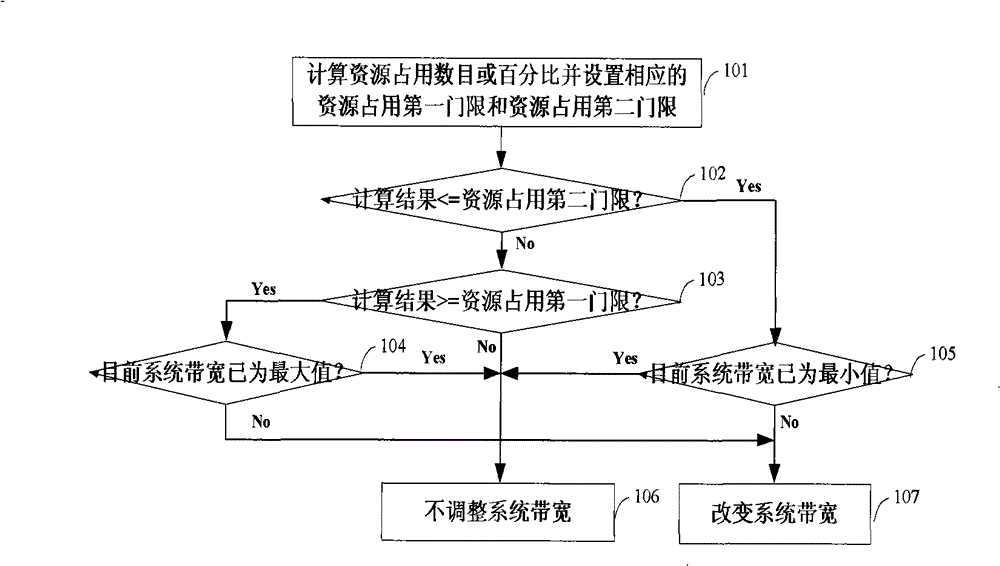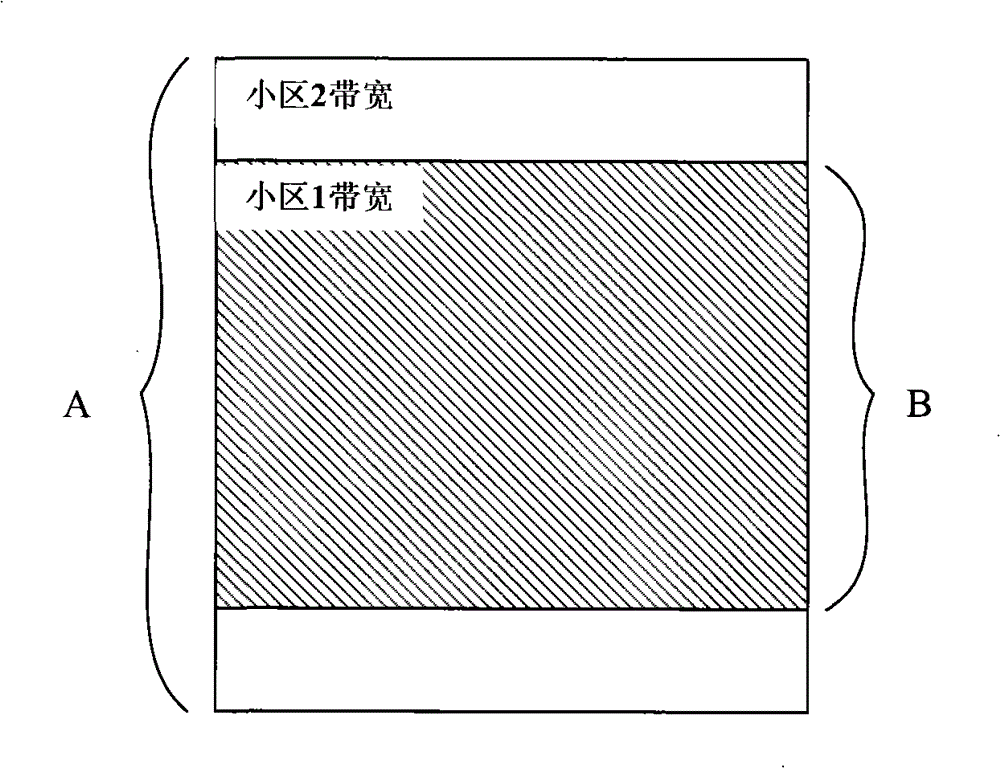System bandwidth self-adaptive adjusting method in long term evolution system
A technology of long-term evolution system and self-adaptive adjustment, applied in the field of mobile communication, which can solve problems such as user interference in neighboring cells
- Summary
- Abstract
- Description
- Claims
- Application Information
AI Technical Summary
Problems solved by technology
Method used
Image
Examples
Embodiment Construction
[0028] The core idea of the self-adapting system bandwidth adjustment method in the long-term evolution system of the present invention is to measure whether the current system bandwidth is appropriate and adjust the bandwidth accordingly by counting the number of online users or the actual usage of RBs. This method can make the system bandwidth change flexibly, help to reduce the overlapping areas of the same frequency in adjacent cells, and thus reduce the interference to users who use the same frequency resources in adjacent cells. The implementation of the technical solution will be further described in detail below in conjunction with the accompanying drawings.
[0029] like figure 1 As shown, the method for adaptive adjustment of system bandwidth in the long-term evolution system of the present invention includes the following steps:
[0030] Step 101: Count the number Num_ue or percentage of users currently in the active state; or report the number of RBs currently a...
PUM
 Login to View More
Login to View More Abstract
Description
Claims
Application Information
 Login to View More
Login to View More - R&D
- Intellectual Property
- Life Sciences
- Materials
- Tech Scout
- Unparalleled Data Quality
- Higher Quality Content
- 60% Fewer Hallucinations
Browse by: Latest US Patents, China's latest patents, Technical Efficacy Thesaurus, Application Domain, Technology Topic, Popular Technical Reports.
© 2025 PatSnap. All rights reserved.Legal|Privacy policy|Modern Slavery Act Transparency Statement|Sitemap|About US| Contact US: help@patsnap.com



